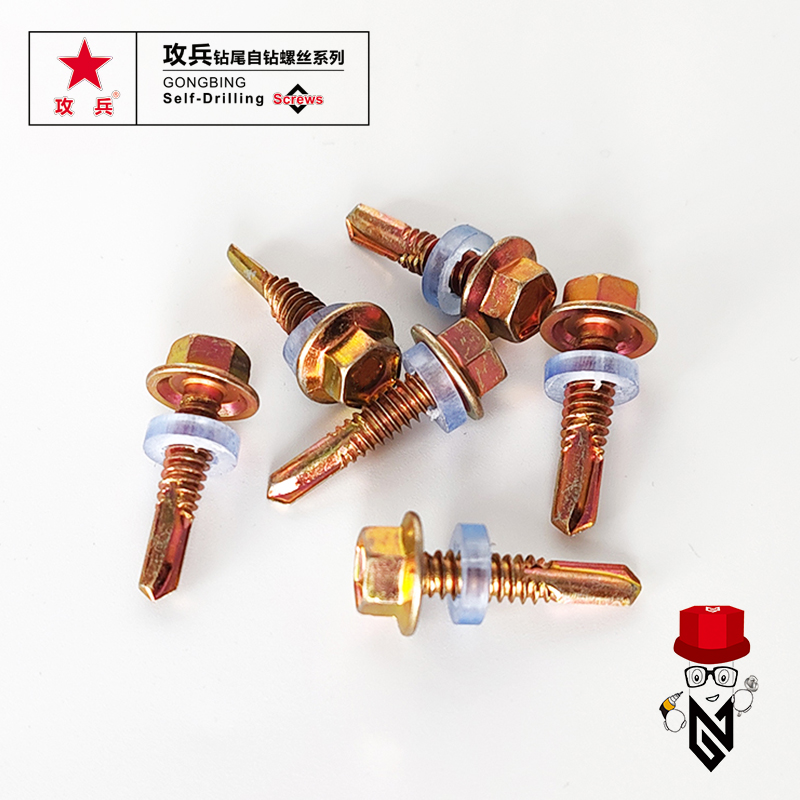Understanding the Importance of J Type Foundation Bolts in Construction and Engineering Applications
Understanding J-Type Foundation Bolts Essential Components for Structural Integrity
When it comes to construction and engineering, the integrity of structures heavily relies on the reliability of their foundational components. One such critical component is the foundation bolt, which anchors various structures to their foundations, ensuring stability and longevity. Among the different types of foundation bolts, the J-type foundation bolt plays a significant role due to its unique design and functionality.
What is a J-Type Foundation Bolt?
A J-type foundation bolt is a specific type of anchor bolt characterized by its distinctive J-shaped hook at one end. This design allows the bolt to provide a secure anchoring point for various structural elements, including steel columns, machinery, and equipment. The hooked end is typically embedded into concrete or masonry, creating a mechanical interlock that enhances the bolt's grip and resistance to pull-out forces.
Design and Dimensions
J-type foundation bolts are usually made from high-strength steel, which ensures durability and resistance to corrosion. The typical dimensions can vary based on the specific application, but they are commonly available in various lengths and diameters to suit different needs. The hook dimension is crucial, as it determines the load capacity and the type of connection it can provide.
The design of a J-type bolt also includes a threaded portion, allowing for the attachment of nuts and washers. This feature facilitates easy assembly and ensures a tight fit. Proper torque must be applied during installation to maintain the required tension and avoid any loosening over time.
Applications of J-Type Foundation Bolts
The versatility of J-type foundation bolts makes them suitable for a variety of applications
. They are primarily used inj type foundation bolt

1. Building Construction They anchor steel structures to concrete foundations, providing essential support for buildings, bridges, and industrial facilities.
2. Machinery Installation These bolts secure heavy machinery and equipment in manufacturing plants and warehouses, safeguarding against vibrations and movement.
3. Infrastructure Projects J-type foundation bolts are employed in urban infrastructure such as wind turbines, telecom towers, and electrical substations, where strong anchoring is vital.
4. Retaining Walls and Fences They help in stabilizing retaining walls and fences, especially in areas with challenging soil conditions.
Advantages of Using J-Type Foundation Bolts
One of the primary benefits of using J-type foundation bolts is their high load-bearing capacity. The J-shaped hook design increases the surface area in contact with the concrete, which improves the bolt's performance under tension and shear loads. Additionally, the ease of installation and removal makes J-type bolts a preferred choice for temporary structures or areas requiring accessibility.
Another advantage is their adaptability; they can be used in various applications across different industries. The durability and corrosion resistance also play a significant role in their longevity, making them cost-effective in the long run.
Conclusion
In summary, J-type foundation bolts are indispensable components in modern construction and infrastructure development. Their unique design and robust performance under load make them ideal for anchoring structures securely. As the construction industry continues to evolve, understanding the importance and applications of such foundation elements remains vital for engineers and builders alike. Proper selection, installation, and maintenance of J-type foundation bolts will ensure structural integrity and safety in diverse applications.
-
Weatherproof Plastic Expansion Anchors for OutdoorNūhouJun.06,2025
-
Sustainability in the Supply Chain: Eco-Friendly TEK Screws ProductionNūhouJun.06,2025
-
Load-Bearing Capacity of External Insulation FixingsNūhouJun.06,2025
-
Double Head Bolts: Enhancing Efficiency in Industrial MachineryNūhouJun.06,2025
-
Corrosion Resistance in Chipboard Screws: Coatings for Wholesale DurabilityNūhouJun.06,2025
-
Butterfly Toggle Bolts : Enhancing Structural ResilienceNūhouJun.06,2025
